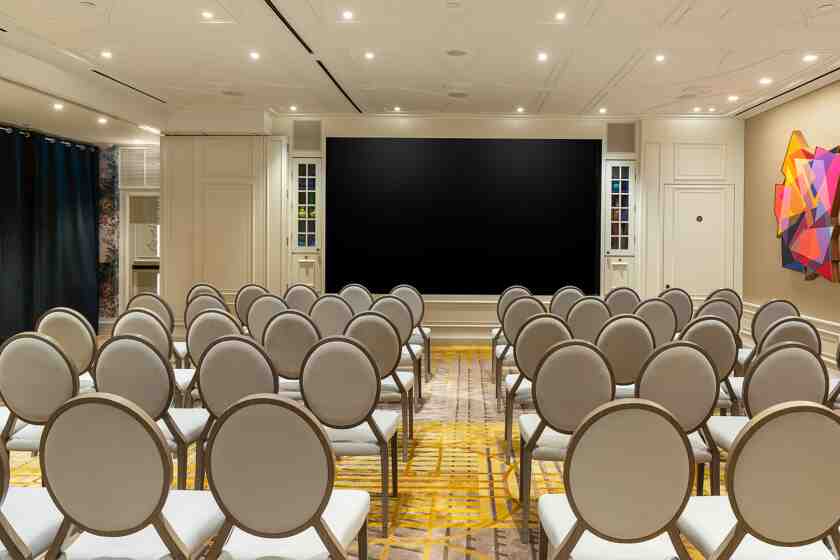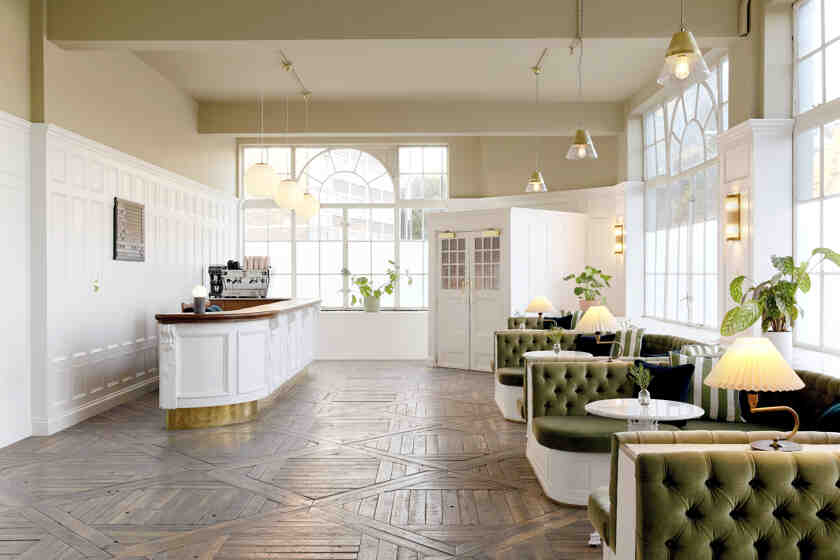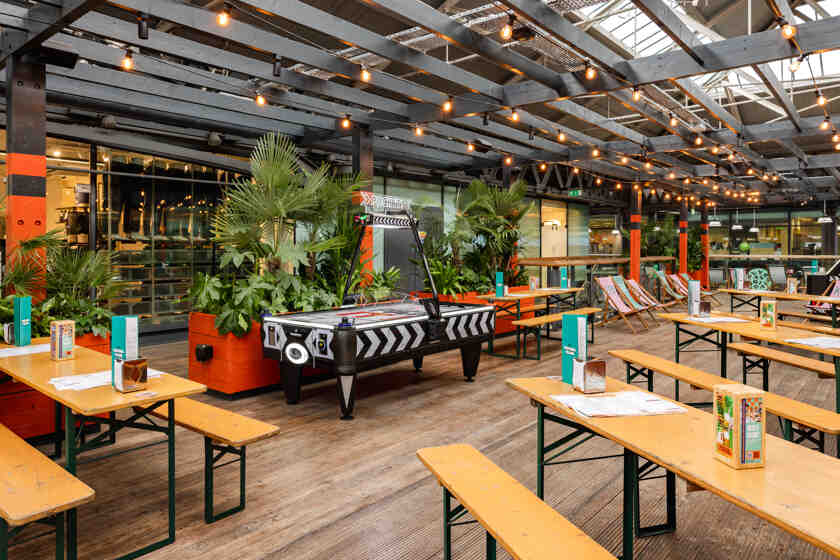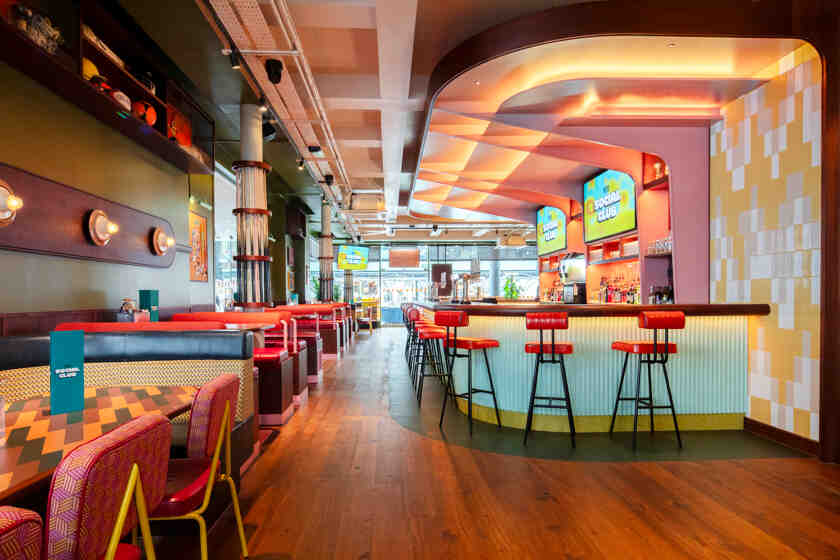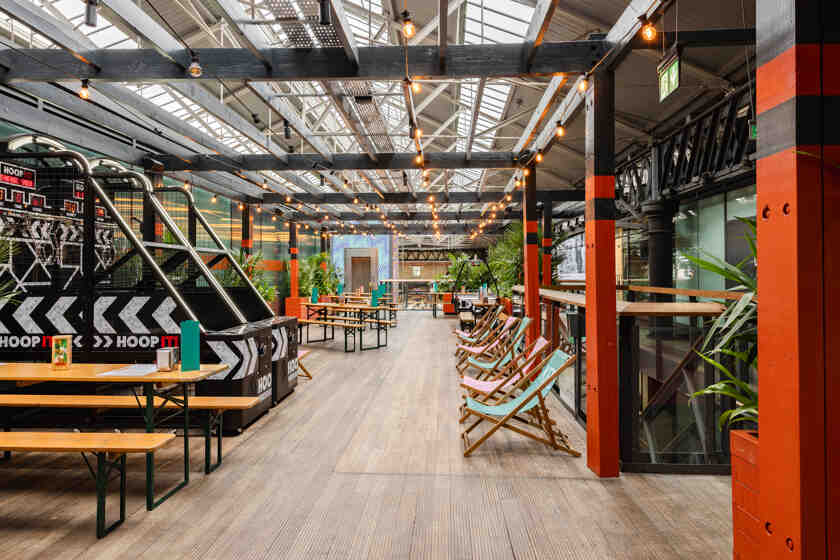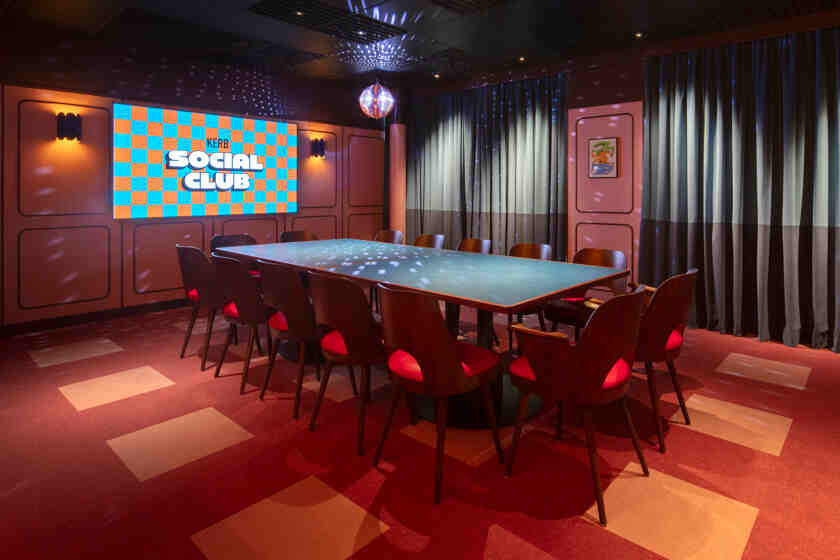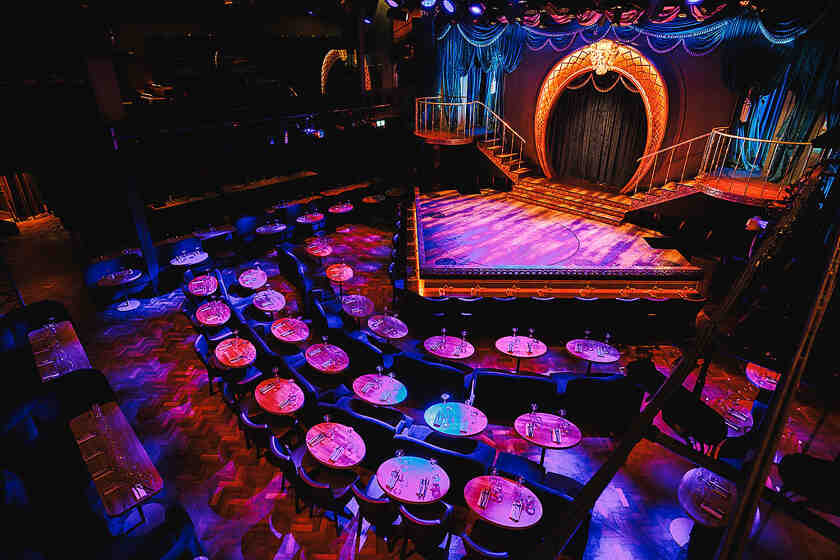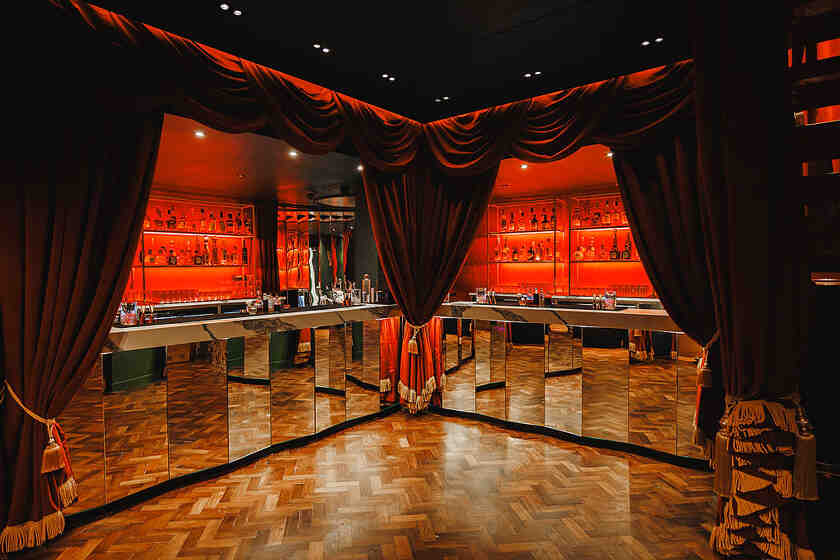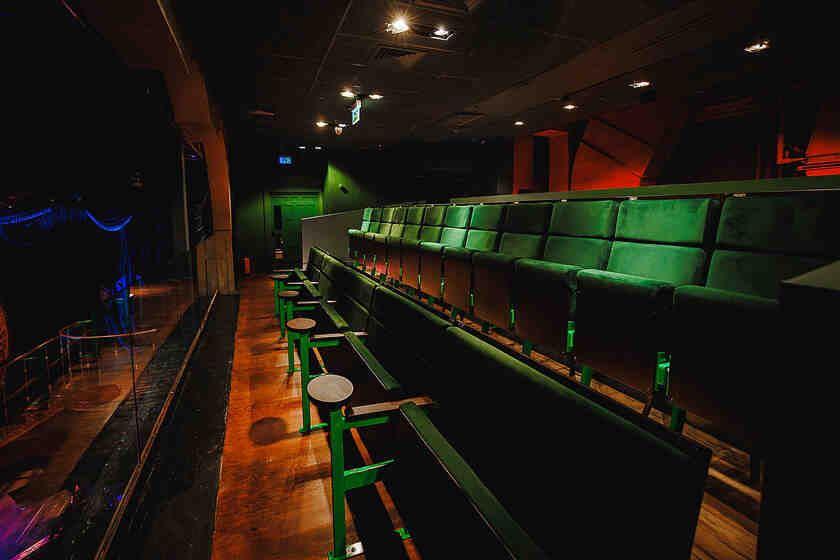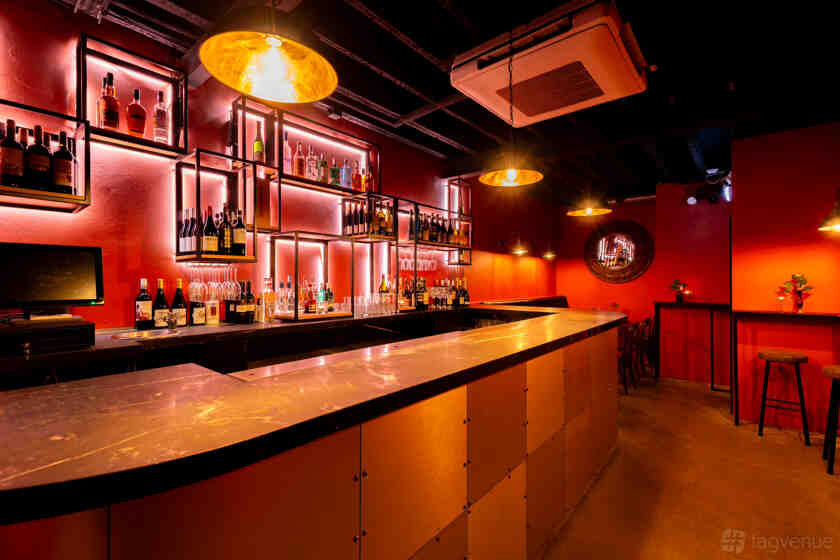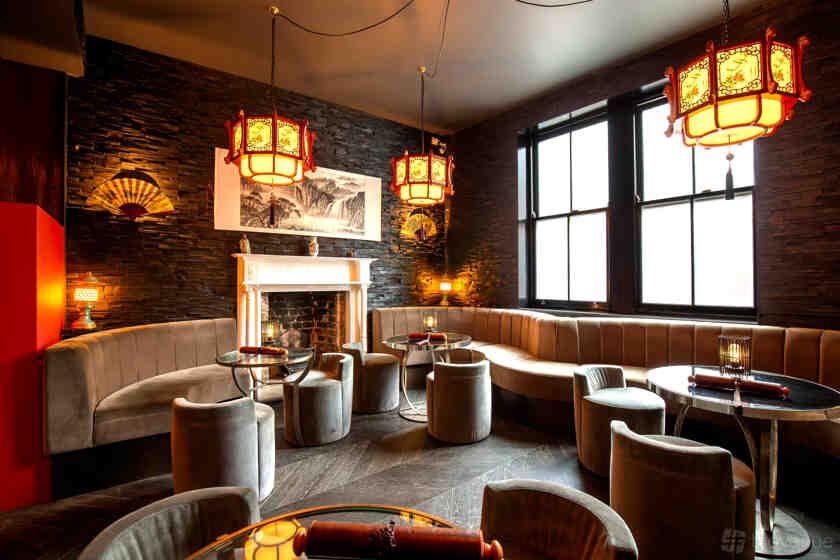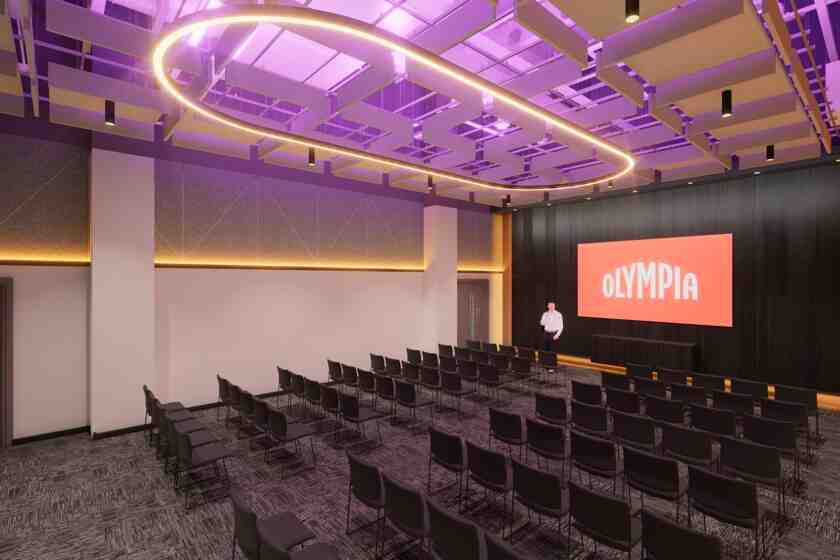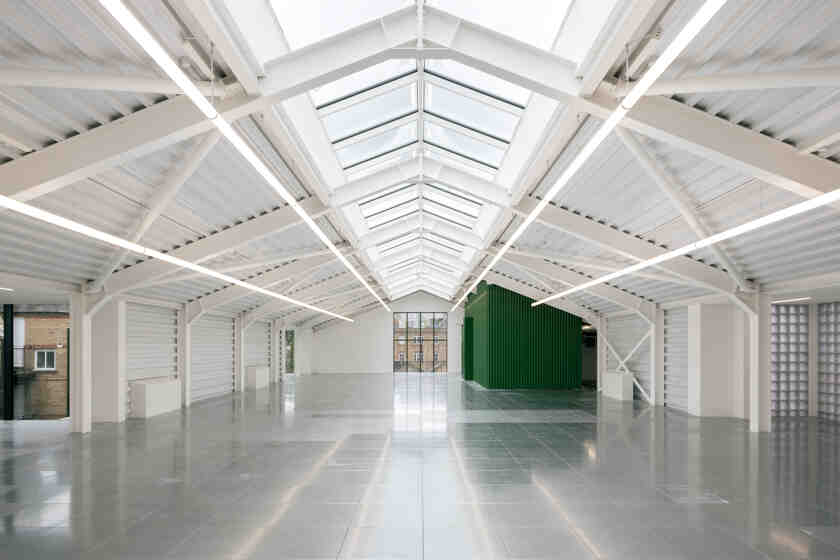Top Trending Workshop Spaces in London for 2025
- EmbankmentResponds within 8 hoursFrom £110per dayStanding60Theatre60Dining57Boardroom40
- Kings CrossFrom £2,000per morningStanding700Theatre60Dining65
- FarringdonFrom £6,000per eveningStanding400Theatre300Cabaret200Dining200Boardroom72
- FitzroviaFrom £100per eveningStanding200Theatre40Dining80Boardroom20
- PaddingtonResponds within 12 hoursFrom £75per hourStanding400Theatre350Cabaret140Dining230Boardroom30
- ShoreditchResponds within 48 hoursFrom £1,500per dayStanding600Theatre150Cabaret100Dining150Boardroom50
- West LondonResponds within 12 hoursFrom £500per eveningStanding700Theatre100Cabaret50Dining240Boardroom44
- Portobello /ladbrokegrove/nottinghillResponds within 24 hoursFrom £500per hourStanding450Theatre120Cabaret60Dining160Boardroom33
- Liverpool StreetResponds within 24 hoursFrom £250per morningStanding600Theatre300Cabaret300Dining300
- EmbankmentResponds within 48 hoursFrom £10,000per dayStanding810Theatre410Cabaret100Dining150
- KensingtonResponds within 48 hoursFrom £25,000per dayStanding7000Theatre4000Cabaret255Dining400
- EustonPrice on requestStanding1000Theatre839Cabaret544Dining600Boardroom40
- Lombard StreetFrom £50per hourStanding40Theatre40Cabaret28Dining20Boardroom16
- AldgateResponds within 12 hoursFrom £10,000per dayStanding500Theatre200Cabaret150Dining150Boardroom100
- BanksideResponds within 12 hoursPrice on requestStanding600Theatre120Cabaret80Dining110Boardroom15
Most Popular Workshop Spaces in London
How to Plan and Run a Successful Workshop
If you’ve never taken a workshop before, it’s hard to know where to start! Whether this is a new venture for you, or something that you’ve been asked to do by your company, holding a workshop is a major responsibility. After all, you’ve been tasked with teaching a group of people the knowledge that you have gained from experience.
Planning
Planning is the key part to running a
workshop of any type. You’ll never have much success if you just turn up on the
day and expect everyone to follow what you’re saying. Having a definite plan is
a must, and there’s a lot more to it than you might think at first.
What is Your Mission Statement?
Another way of asking this is ‘What is the purpose
of this workshop?’ If you don’t know the answer, then neither will your
participants. Having a clear knowledge of why you are conducting a workshop
with this particular group and why you have been asked to plan and run this,
will help you to stay focused on what the end goal is – and what the group
needs to learn in order to get there. While you probably have a generic mission
statement in mind for your workshop, this should be tailored for each group’s
needs.
Who is This Workshop For?
A simple question to answer right? Well,
maybe not. You might be approached to conduct a workshop where you just don’t
think that your particular style will suit the group. If this is the case, put
them in touch with someone else you think can really help them. Is your
workshop for people of all levels, or just for senior management? Do you host
different workshops for different groups, or is everyone in a room together?
Knowing the answer to these questions is important before you start.
Venue
If you have a workshop and a group of
people in mind, you’ll need the ideal venue. Perhaps you’ve been asked to host
a workshop internally in your own company? If so, it’s best to get away from
the office. Workshops for hire in London vary dramatically, so you’re sure to
find one that is the perfect size for your group. Consider the type of
activities you will be doing when deciding on the amount of space you’ll need.
Some workshops need participants to be more spread out, and some favour a more
intimate setting.
Location
There are plenty of unique spaces for rent and room hire in the city of London, but finding the perfect location is imperative. Perhaps Kensington or Covent Garden might have the perfect space, or have you considered Camden or Westminster? Nearby cities don't have quite as much range as within the centre of London, where you can host board meetings and corporate events and business workshops all within the same postcode.
Create an Agenda
In order to plan a successful workshop, you
need to split the day into sections, and understand what activity is going to
take place. This might sound obvious but knowing how you are going to move from
one section to another, and how long to give for each activity, is an important
point to consider. At the end of the day, all of this should coalesce together,
and the group should leave having learnt something really valuable.
How Will You Evaluate?
You’ll never know how well your workshop
really went unless you have a good evaluation strategy. Have every participant
complete an anonymous feedback form that asks what they liked and didn’t like
about the day, as well as any suggestions that they have to improve on it. It’s
also a good idea to check back in with your contact after six months, to ask
whether the group are using what they learned in your workshop. If they are,
this will naturally lead to recommendations, and more work for you!
Running
So, you’ve planned all of your activities,
you know what the purpose is, and you’ve tailored your workshop for the group.
What now? Well the only thing left to do is run the workshop! Here are a few
things to remember on the day.
Why Are They Here?
When running a workshop, the end goal should always be firmly in your mind. All of the activities should lead towards this. The participants need to know right from the very start what this goal is, and how they are going to achieve it. Having a sense of purpose from the beginning of the session will help to motivate them. In some cases, participants might have no idea why they were sent to this workshop event, which is why it’s so important to define at the beginning.
Encourage Collaboration
Participants should talk to one another,
and to you. Having activities in which they work together as teams, or where
you are all brainstorming an idea as a group, will help them to work together.
If the participants don’t know each other at the start, get everyone to introduce
themselves and tell the room about their job. Icebreakers are much more
important than you think, and they will help the conversation to continue on
into the coffee and lunch breaks.
Vary the Activities
Activities should differ so that the group
never feels as if it is repeating itself. Have handwritten work and presentations
in-between something a little more fun and energetic. This will prevent the
group from becoming lethargic and the day will go in quickly for everyone. Make
sure that all activities are kept to time however, otherwise participants will
feel as if they are missing out.
Drive the Group Forward
You are the one that is facilitating the
workshop, so you need to be the one to encourage participants and keep an
upbeat attitude throughout. Try and prevent lulls by asking questions and
getting the group to engage with you and each other even more. Keep presentations
interactive so that the group has no time to daydream and stays focused on the
task at hand.
If you know that what you have to teach is
valuable, then this is going to show through your workshop no matter what. The
main thing is to keep focused on the end goal, and not get side-tracked. This
will mean that all of the participants will know exactly how they can put what
they have learned into practice.
Popular areas for workshop venues in london
- Aldgate
- Aldgate East
- Aldwych
- Angel
- Bank
- Bankside
- Barbican
- Barnsbury
- Battersea
- Bermondsey
- Bethnal Green
- Bishopsgate
- Bloomsbury
- Bond Street
- Borough
- Brixton
- Cambridge Heath
- Camden
- Canonbury
- Central London
- Chancery Lane
- Charing Cross
- Chelsea
- City of London
- Clapham
- Clerkenwell
- Covent Garden
- Dalston
- De Beauvoir Town
- Drury Lane
- East London
- Elephant and Castle
- Embankment
- Euston
- Farringdon
- Finsbury
- Fitzrovia
- Fulham
- Goodge Street
- Great Portland Street
- Green Park
- Hackney
- Hackney Central
- Hackney Marshes
- Hackney Wick
- Haggerston
- High Holborn
- Highbury
- Holborn
- Homerton
- Hoxton
- Hyde Park
- Islington
- Kensington and Chelsea
- Kings Cross
- Lambeth
- Leicester Square
- Liverpool Street
- London Bridge
- London Fields
- Lower Clapton
- Marylebone
- Mayfair
- Mile End
- Moorfields Eye Hospital
- Moorgate
- North East London
- North London
- Notting Hill
- Old Street
- Oxford Circus
- Oxford Street
- Paddington
- Pentonville
- Piccadilly
- Piccadilly Circus
- Portsoken
- Regent Street
- Regents Park
- Russell Square
- Shadwell
- Shoreditch
- Soho
- South Bank
- South East London
- South Hackney
- South London
- Southwark
- Spitalfields
- St Paul's
- St. James's Park
- Stepney
- Stoke Newington
- Stratford
- Temple
- The City
- The West End
- Tottenham Court Road
- Tower Bridge
- Tower Hamlets
- Tower Hill
- Vauxhall
- Victoria Park
- Victoria Station
- Wandsworth
- Warren Street
- Waterloo
- West London
- Westminster
- Whitechapel



